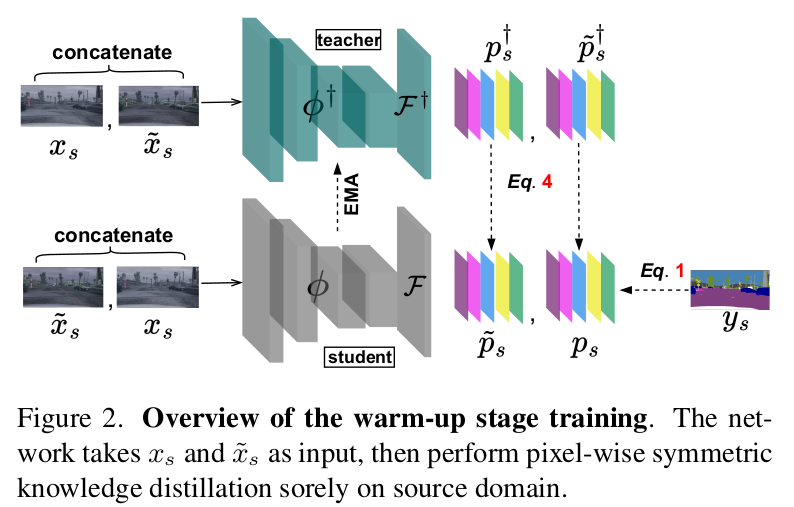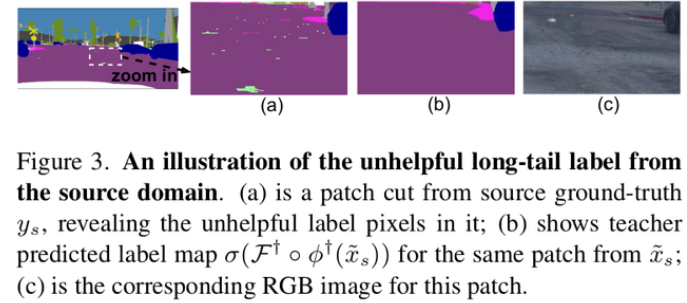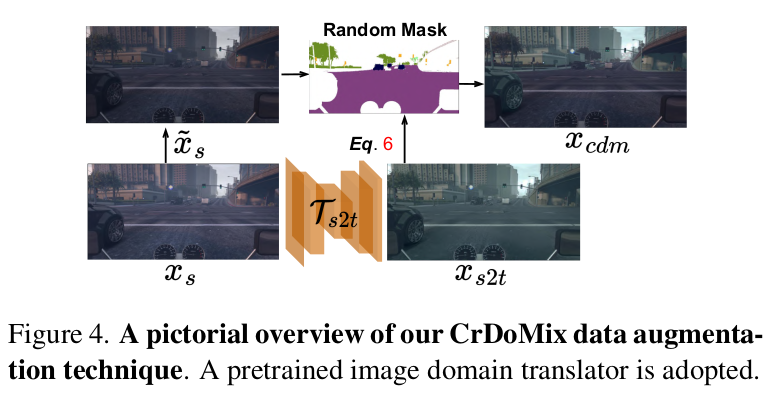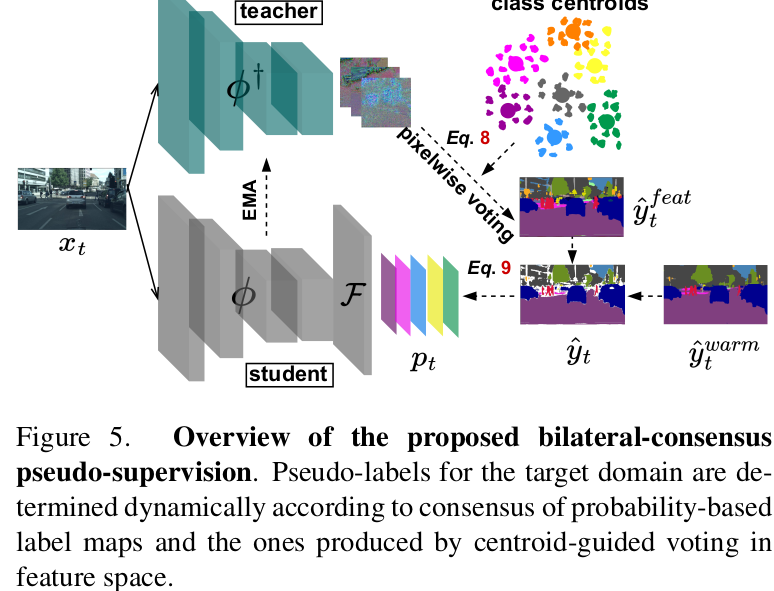[CDA][SS] DiGA: Distil to Generalize and then Adapt for Domain Adaptive Semantic Segmentation
[CDA][SS] DiGA: Distil to Generalize and then Adapt for Domain Adaptive Semantic Segmentation
-
paper : https://arxiv.org/abs/2307.15063
-
git: https://github.com/fy-vision/DiGA
-
CVPR 2023 (‘23.09.12 인용수 1회)
-
downstream task : UDA for semantic segmentation
-
Contribution
-
warm-up stage:

- Supervised learning뿐 아니라 feature-alignment loss를 teacher-student network끼리 주어 augmentation에 대해 robust한 generalizability를 확보
- Cross-Domain-Mixture (CrDoMix) data augmentation을 주어 성능 향상
-
self-training stage:
- Bilateral-consensus pseudo-supervision으로 threshold-free self-training 기법을 제안
- feature-induced labels (pixel-to-centroids)
- probability based labels (from warm-up model)
- Bilateral-consensus pseudo-supervision으로 threshold-free self-training 기법을 제안
-
-
Warm-up stage
-
Supervised Loss → 기존 CE 와 동일
-
Distillation Loss : Class 정보를 알고 있는 source dataset에 대해
-
teacher 한테 weak augmentation / student한테 strong augmentation을 주어 symmetric KD Loss를 줌

- $F^+, \phi^+$ : teacher의 encoder, teacher의 segmentation head
- teacher는 Ema update
- $F, \phi$ : student의 encoder, student의 segmentation head
- $F^+, \phi^+$ : teacher의 encoder, teacher의 segmentation head
-
fine-grained label에 의한 ovefitting 방지 목적으로 soft-label 사용

-
-
Cross-Domain-Mixture augmentation (CrDoMix)

-
Pretrained, Fixed Cycle GAN (Source 2 Target)을 활용!
-
binary mask를 사용하여 mixture

- source data의 기하학적 모양을 헤치지 않음 → No label change!
- 추가 batch 늘릴 필요가 없음
- Target domain 정보를 흘려주며 학습 가능!
-
-
-
Threshold-free Self-Training

-
Centroids

- GAP: Global Average Pooling
- $x_{cdm}$ : 6번식 결과
- $\phi$ : warmup Model의 feature
- $\rho^k$ : k class의 centroid
- Warm-up Model을 활용해서 Class centroid를 추출함 → Noise label voting 시에 활용할 목적
- initial value : warmup model의 class-wise feature
-
Feature-induced labels

- centroid와 teacher feature 간의 제일 similar한 class로 jk pixel을 label → local structure
-
Probability-based labels
- pseudo-supervision based on Warmup Model prediction → global structure
-
Pseudo-supervison Loss


- $p_t$: student prediction
-
Full objective
